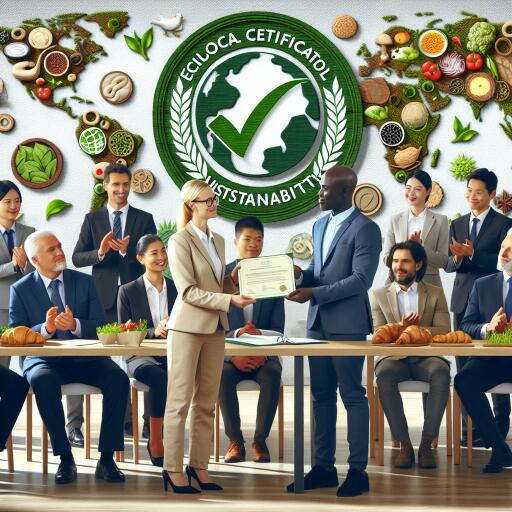
Sustainable Food Group Partners with SCS Global Services for Sustainability Certification
In an important development in the realm of sustainable agriculture and biodiversity preservation, SCS Global Services (SCS), a forerunner in the field of environmental and sustainability certifications, has broadened its horizons through a new partnership. The Sustainable Food Group, an affiliate of the esteemed IPM Institute of North America, has officially recognized SCS as a certified authority for their revered Sustainability Standard™. This accreditation marks SCS as one of only two organizations empowered to offer this esteemed certification within the United States and Canada.
Attaining the Sustainability Standard certification signifies a significant commitment on the part of agricultural entities to adopt and promote sustainable farming techniques while prioritizing biodiversity conservation. The standard delineates a comprehensive framework that underscores social and environmental best practices. Emphasizing the importance of Integrated Pest Management (IPM), the standard also encompasses crucial areas such as soil vitality, the responsible use of agrochemicals, environmental conservation, effective nutrient and irrigation strategies, air quality, waste management and recycling, as well as water and energy preservation. Worker welfare and crisis management protocols are also integral components of the certification criteria.
Designed to serve a broad spectrum of participants in the agricultural sector—including producers, handlers, shippers, packers, and manufacturers—the Sustainability Standard functions as a dynamic tool. It aims to facilitate the measurement and enhancement of sustainability best practices throughout the supply chain. In doing so, it enables organizations to meticulously track their sustainability performance and uncover areas ripe for improvement. Notably, the certification can be pursued independently or in tandem with existing food safety audits, offering flexibility to businesses striving to illustrate their dedication to sustainable and safe agricultural practices.
The introduction of the Sustainability Standard by SCS into its service offerings comes at a time when the demand for transparency in sustainable agricultural practices, especially those that protect biodiversity and pollinator health, is continually escalating. Retailers, in particular, are increasingly insistent on transparency from their suppliers concerning the adoption of environmentally friendly practices throughout the fresh produce supply chain. Ericka Villaseñor of SCS, an expert in the technical nuances of the Sustainability Standard, articulated the company’s enthusiasm about integrating this certification into their existing suite of services. SCS is committed to facilitating organizations in meeting the growing expectations of retailers by offering a streamlined audit process that can be efficiently combined with other food safety certifications like PrimusGFS, SQF, GLOBALG.A.P., and more.
The Sustainability Standard has its roots in Sysco’s Sustainable/IPM Program and has seen global adoption across numerous fruit and vegetable supply chains, benefiting millions of acres of agricultural land. Its implementation has fostered confidence and reliability in the reporting of essential metrics, aligning with the IPM programs of leading retailers. Esteemed names in the retail sector, including Walmart, Sysco, Whole Foods, Kroger, and Giant Eagle, recognize the Standard as a benchmark for advanced IPM practices. The endorsement of the Standard by such prominent retailers underscores its significance and effectiveness in promoting sustainable agricultural practices that are both eco-friendly and socioeconomic.
Through this partnership between the Sustainable Food Group and SCS Global Services, the agricultural community is poised to make significant strides in sustainability. As the industry continues to move towards more environmentally responsible practices, the adoption and implementation of the Sustainability Standard stand to play a pivotal role in shaping a greener, more sustainable future for global agriculture.





Leave a Reply